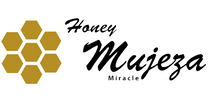Royal Jelly

Royal jelly is a creamy, nutrient-rich secretion produced by worker honeybees. It plays a crucial role in the development and sustenance of the queen bee, and it is known for its potential health benefits.
Here are some key aspects of royal jelly:
Composition: Royal jelly is a highly nutritious substance, composed of water, proteins, sugars, fats, vitamins, minerals, and bioactive compounds like enzymes and amino acids. It contains significant amounts of B vitamins (especially B5 and B6), along with trace minerals such as iron, calcium, and magnesium.
Role in the Hive: Royal jelly is fed exclusively to all bee larvae during the first three days of their development. However, only the larvae destined to become queen bees continue to be fed royal jelly throughout their development. This special diet triggers changes that allow a regular bee larva to develop into a fertile queen bee, rather than a sterile worker bee.
Physical Characteristics: Royal jelly is a thick, milky, white or pale yellow substance with a slightly acidic taste. It has a gelatinous texture and is secreted by the hypopharyngeal and mandibular glands of nurse bees.
Health Benefits: Royal jelly is prized for its potential health benefits, which are attributed to its rich nutritional profile. It is believed to have antioxidant, anti-inflammatory, and immune-boosting properties. It has been used in traditional medicine for a variety of purposes, including improving energy levels, enhancing skin health, and supporting reproductive health.
Modern Uses: Royal jelly is often found in dietary supplements, skin creams, and cosmetics. It is marketed for its potential benefits in promoting general health, vitality, and youthful skin. Some people also use it as a natural remedy for fertility and menopausal symptoms.
Research: While royal jelly has been the subject of numerous studies, scientific evidence supporting its health claims is still limited and often inconclusive. Research continues to explore its potential effects on human health, but it is generally considered safe for consumption in moderate amounts.
Rarity and Cost: Because royal jelly is produced in relatively small quantities by bees, it is considered a rare and expensive product, often regarded as a delicacy or luxury supplement.
Overall, royal jelly is a fascinating and unique bee product with a long history of use in traditional medicine and modern wellness practices.

